The 1950s were a decade where science fiction ruled. Horror and fantasy were were in retreat though that was the decade of Tolkien’s Lord of the Rings and Poul Anderson’s The Broken Sword. You had Damon Knight and James Blish savaging A. Merritt, H. P. Lovecraft, Robert E. Howard in reviews as “criticism.”
Despite this, some sword & sorcery type fiction did sneak in. If one were to put together an anthology, there is enough fiction to fill out a book.
Contents:
Poul Anderson, “The Valor of Cappen Varra,” Fantastic Universe, Jan 1957
Jack Vance, “Liane the Wayfarer,” Worlds Beyond, Dec. 1950
L. Sprague de Camp, “The Stronger Spell” Fantasy Fiction, Nov. 1953
Edward E. Smith, “Tedric,” Other Worlds, March 1953
Theodore Sturgeon, “The Riddle of Ragnarok,” Fantastic Universe, June 1955
John Brunner, “City of the Tiger” Science Fantasy, December 1958
Fritz Leiber, “Claws From the Night,” Suspense, Fall 1951
Robert Silverberg, “Spawn of the Deadly Sea,” Science Fiction Adventures, April 1957
Poul Anderson is one of my favorite three science fiction writers. He never really wrote much true sword & sorcery which is a shame. This should have been a series.
Jack Vance is another of my favorite three science fiction writers. It took me a few times to get into him. That was a hardback collection of early pulp science fiction. This was run in the magazine Worlds Beyond as “The Loom of Darkness.”
L Sprague de Camp became a fan of sword & sorcery when he read Robert E. Howard’s “Hour of the Dragon” as Conan the Conqueror. His Pusad Age is my favorite world of his. His version of the Hyborian Age but “more logical.” De Camp wrote The Tritonian Ring and a handful of stories set in Pusad in the early 1950s and then petered out and he was want to do. “The Stronger Spell” was in a short lived fantasy magazine edited by Lester del Rey. “The Eye of Tandyla” was the other story that could be used.
Edward E. “Doc” Smith is remembered as the founder of space opera. He experimented with fiction bordering on sword & sorcery with the two “Tedric” stories. Brian Aldiss wrote that sword & sorcery was a form of space opera. Sword & sorcery came from different origins but in the hands of E. E. “Doc” Smith, you could make the case. “Tedric” had the additional bonus of illustration by J. Allan St. John.
Theodore Sturgeon’s story is perhaps more into myth but this comes close enough.
John Brunner’s story ran first in Science Fantasy in the U.K. and then Fantastic Universe in the U.S. a year later. This has a Chinese setting. I am always up for a good yarn with a Chinese or Japanese setting. This is an obscure one you probably never heard of.
Fritz Leiber somehow placed this story in a digest magazine that mystery and fantastic material. I like this particular Fafhrd & the Gray Mouser story as it is harder in execution.
Robert Silverberg could wrote some great adventure science fiction early in his career. This story does not have sorcery but the attitude is like those Poul Anderson adventures from Planet Stories. He would expand this novelette into the novel Conquerors From the Darkness a decade later.
Honorable Mention: Fletcher Pratt’s “Spiral of the Ages” is a short novel (Startling Stories, July 1954). It has never been reprinted. L. Sprague de Camp described Pratt’s fiction as “parallel worlds” in Literary Swordsmen and Sorcerers. This is way better than the Harold Shea hokum he co-wrote with de Camp in Unknown. Alternate timelines with a variation of the Arthur myth. This would be a book buster in size. I have his Battles That Changed History which I think is the last book he wrote. The addition of this short novel would make the anthology unwieldy.
There was some sword & sorcery type fiction in the 1950s. Donald Wollheim reprinted Robert E. Howard’s “Hour of the Dragon” as Conan the Conqueror as one of the very first Ace Doubles. Gnome Press published Robert E. Howard and Fritz Leiber. Fantastic Universe was a 3rd tier science fiction magazine. It takes the award as the magazine willing to run some sword & sorcery fiction amidst the science fiction.
Things would change at the end of the decade when the Universal Studio monster movies would be shown across the U.S. on Saturday nights on local stations, often with movie hosts. The decade and a half turn away from the supernatural would end.



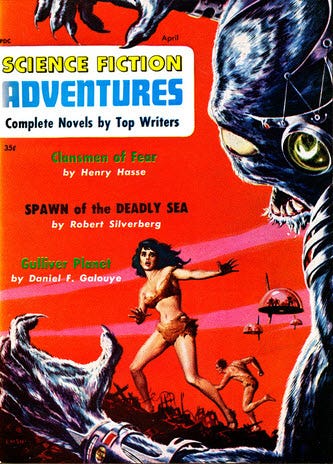
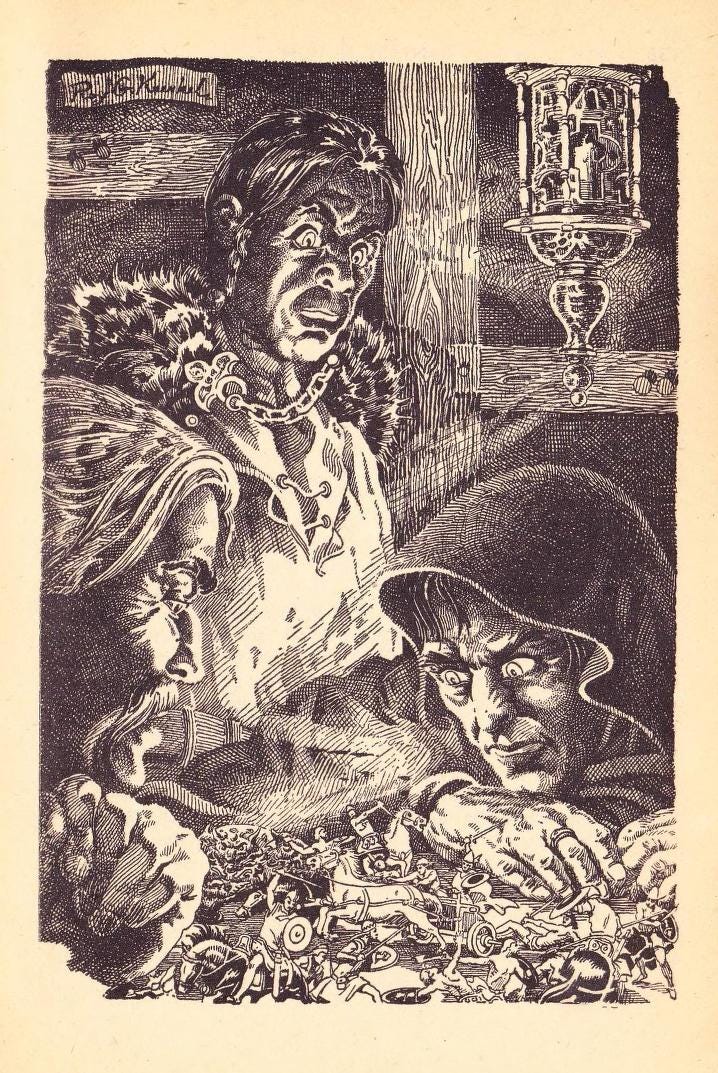
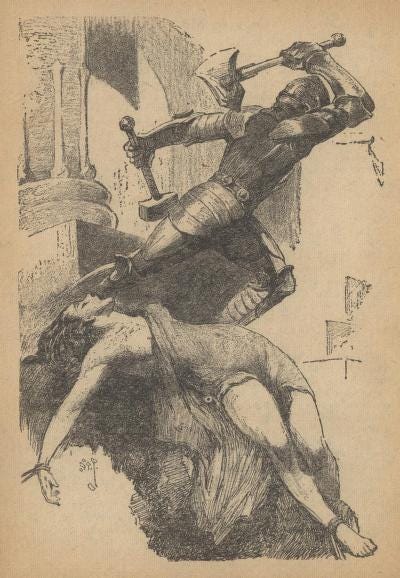
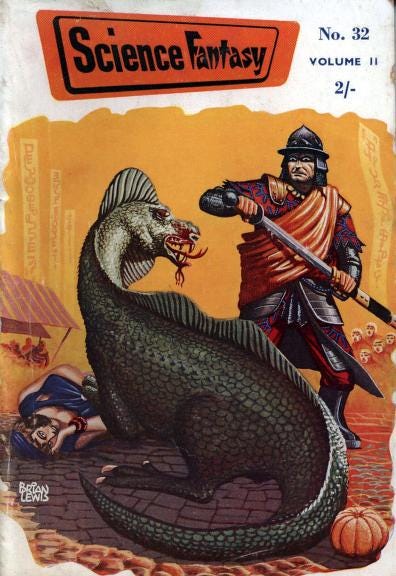
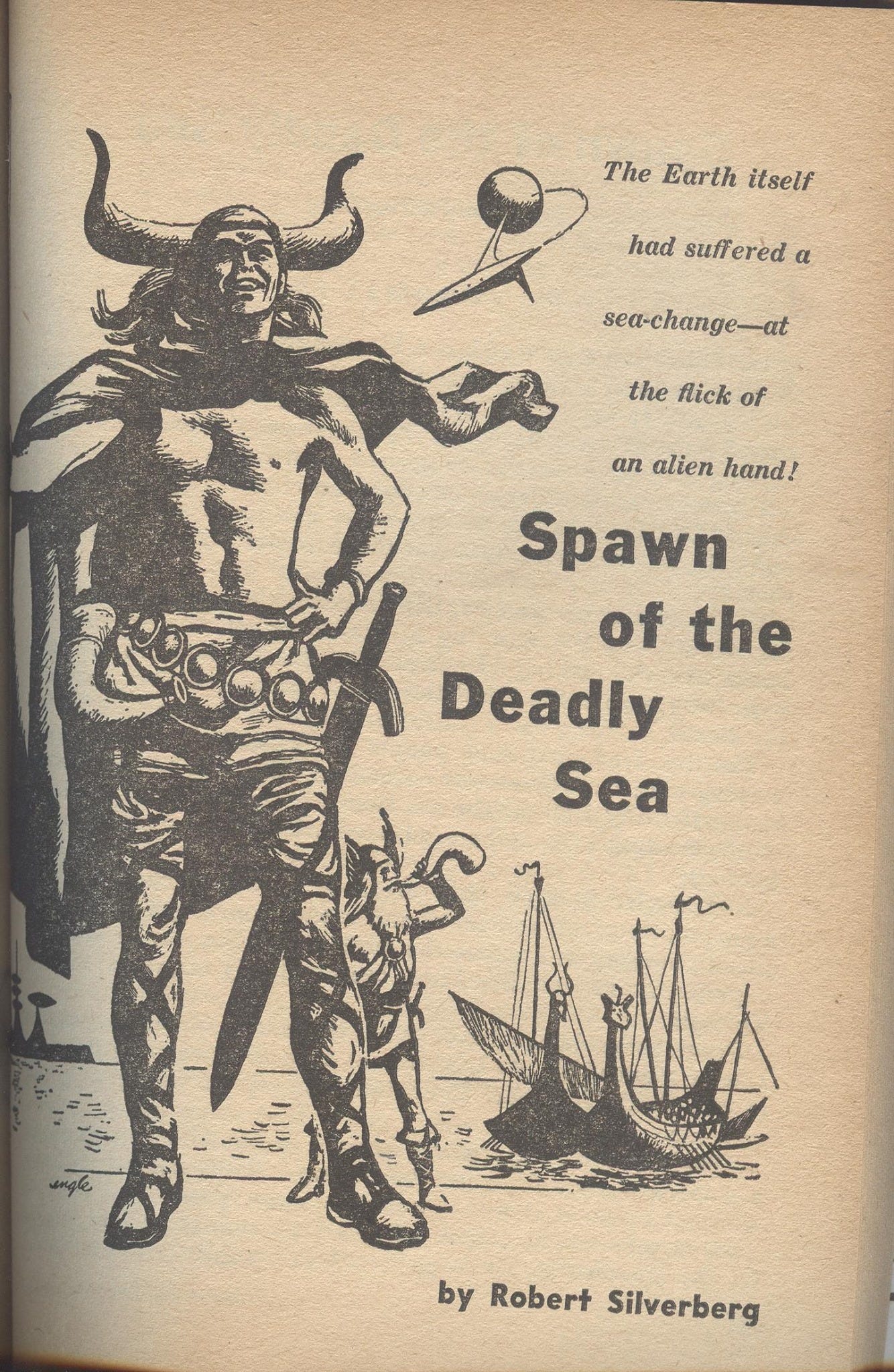
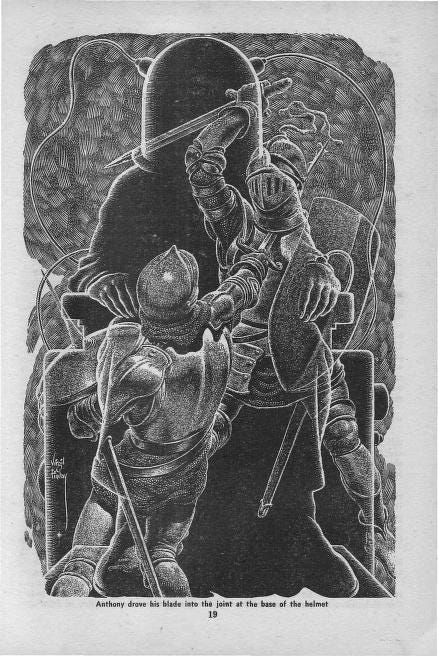
Great stuff! These authors were my faves as a child, and a seminal influence on me ever since.
I've been waiting patiently for you to review Disney's Rocketeer. It would appear you are on another tangent now, but if the mood strikes someday, I'd love to hear it.